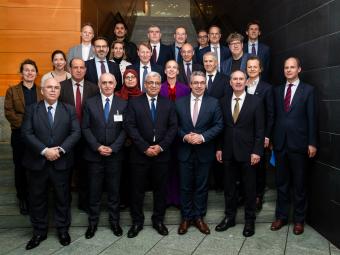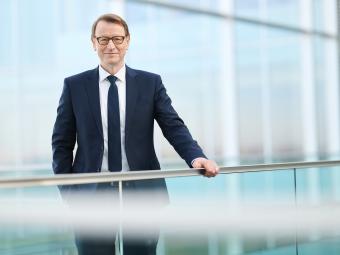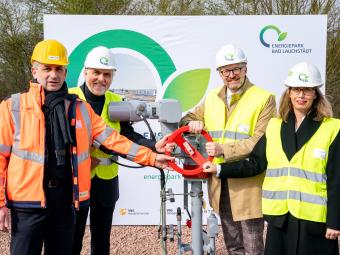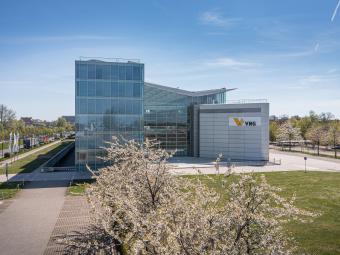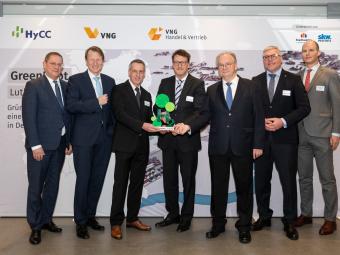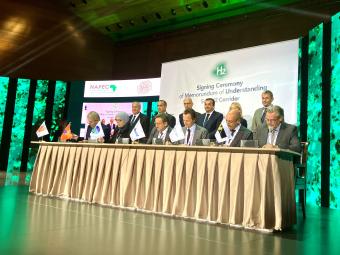Major investments create basis for energy transition projects in Eastern Germany: VNG closes financial year 2023 on very successful note
“Last year was once again characterised by an exceptional market environment. This opened up opportunities for us that we successfully exploited. All in all, we have achieved an extraordinary result that far exceeded our expectations,” commented Ulf Heitmüller, CEO of VNG AG, at the beginning of this year’s annual press conference. “All business divisions contributed to our financial success. However, it is already foreseeable that this profit situation cannot be sustained in 2024. We expect the market, and as a consequence the Group result, to normalise next year,” added Heitmüller.
VNG closed the 2023 financial year with an adjusted EBIT (operating earnings before interest and taxes) of EUR 447 million (2022: EUR -205 million). At EUR 380 million, the consolidated net profit is also significantly higher than the previous year’s figure (2022: EUR -337 million). “Our commercial success affords us the financial stability we need to ambitiously yet steadily forge ahead with the necessary investments in the transformation of the energy system and to consistently implement our VNG 2030+ strategy. We intend to invest up to EUR 5 billion by 2035 provided that the right framework conditions are in place. A large proportion of our investments will be channelled into expanding the infrastructure for green gases. In 2023, we once again invested heavily in structural change in the Eastern and Central Germany region. Across all business divisions, our investments totalled EUR 197 million,” pointed out Bodo Rodestock, CFO and CHRO of VNG AG. Invoiced sales in the 2023 financial year totalled around EUR 23.2 billion (2022: around EUR 36.2 billion). As at 31/12/2023, the VNG Group had a total of 1,688 employees (2022: 1,578).
Success across all business divisions in 2023
The independent gas transmission system operator ONTRAS Gastransport GmbH made a significant contribution to the Group’s annual result in the lower three-digit million range. Adjusted user transit fees and lower energy costs generated an improvement in earnings. This means that the Transport division continues to be a central pillar of the VNG Group. The Storage division gained significantly in importance as a result of the increased value of storage capacity for the security of supply, allowing increased summer-winter spreads to be leveraged as part of successful marketing activities. Despite a volatile market environment, operations of VNG Gasspeicher GmbH (VGS) achieved an adjusted EBIT in the mid double-digit million range.
The secure supply of municipal utilities, redistributors, industrial customers and power plants was the focus of the Trading & Sales division in the 2023 financial year. In particular the utilisation of booked storage capacities by traders, gas sales to major customers and trading activities on European gas markets had an extremely positive impact on earnings. “In 2023, the extreme costs incurred by procurement of replacement gas volumes no longer supplied from Russia will no longer apply and these will not arise in 2024 either. Overall, VNG has proven that we were able to manage a crisis year like 2022 in a prudent and resilient manner,” added Rodestock. VNG Handel & Vertrieb GmbH (VNG H&V) contributed a positive result in the lower three-digit million range to VNG’s overall result.
In relation to security of supply, VNG focused in 2023 on the further diversification of gas procurement. VNG now covers its requirements with imports from Norway and Algeria, via the commodity market and with purchases of LNG. “Since January 2024, VNG has been the first German company to purchase pipeline gas from Algeria. We will continue to work on concluding new supply contracts. Every additional contract represents another building block in securing a reliable gas supply. At the same time, we always consider the transformation of the energy carrier and also think about securing supplies of renewable and decarbonised gases. International co-operation is essential for the successful roll-out of the hydrogen economy. Germany will not be able to cover its future hydrogen requirements through domestic production alone. We will also continue to be dependent on imports,” continued Heitmüller. VNG is working with TEH2, a subsidiary of the French company TotalEnergies, to establish a green hydrogen supply partnership with Chile. In addition, VNG is working in other national and international consortia on plans to import of green gases in order to implement long-term hydrogen and ammonia projects.
BALANCE Erneuerbare Energien GmbH (BALANCE) expanded its capacity in the 2023 financial year and now operates 40 facilities in Northern and Eastern Germany. The installed thermal firing capacity of its portfolio is around 178 MWFWL. This means that 120,000 households can be supplied each year with renewable energy. “Biogas is an important component of the decentralised energy system of the future and is already increasing the proportion of green gases in today’s gas grid. As a regionally produced and base load-capable energy source, biogas therefore makes an important contribution to security of supply. We want to maintain substantial growth in the biogas sector, optimise our portfolio and contribute to regional value creation,” explained Hans-Joachim Polk, Chief Infrastructure and Technology Officer at VNG AG. The Biogas division generated an adjusted EBIT in the low single-digit million range.
The youngest of VNG’s five business divisions is focused on the operation and expansion of digital infrastructure. VNG is investing directly and indirectly in the expansion of the fibre optic network and the FTTX business via various shareholdings and subsidiaries. The focus is also on partnerships at municipal level in Central Germany. The adjusted EBIT of the Digital Infrastructure division will be in the high single-digit million range in the 2023 financial year.
Bad Lauchstädt Energy Park & Rostock Energy Hub: Significant milestones on road to expanded use of green gases
“We are currently testing how the gas industry of the future will function and how to successfully ramp-up the use of green gases as part of the consortium behind our flagship project, the Bad Lauchstädt Energy Park real-world laboratory. We are in the middle of implementing this project. With the FID of the consortium and the ground-breaking ceremony in summer 2023, we have a construction site that is visibly making progress. We passed several important milestones last year. For example, VNG concluded the first supply contract for green hydrogen with TotalEnergies Raffinerie Mitteldeutschland as an anchor customer in 2023. And in a first for Germany, ONTRAS has been working on converting 25 kilometres of gas pipeline between Bad Lauchstädt and Leuna to transport hydrogen since 2023. The first green gas is to be delivered as early as second half of 2025. Our aim is to model the entire value chain on an industrial scale for the first time. In the future, industrial companies in the central German chemical triangle will be supplied with locally generated green energy,” said Hans-Joachim Polk. Eight wind turbines will generate up to 50 megawatts of renewable electricity in the vicinity of the real-life laboratory for the energy transition. This is to be converted into green hydrogen in a 30 megawatt electrolyser and transported to the customer via the converted pipeline.
“In order to supply industry and private households with a secure and competitive supply of energy after natural gas is phased out, other gases such as biogas and hydrogen will still be needed. As VNG, we were able to gain significant momentum last year in our transformation to green gases. The existing transport and storage infrastructure must now be utilised for the ramp-up of green gases. We want to support Central and Eastern Germany on the road to decarbonisation and thus actively help shape structural change and the energy transition in this region,” Polk continued. For example, VNG is working on a joint project with the Norwegian energy company Equinor to turn the port of Rostock into a decarbonised energy hub in Eastern Germany. As part of this project, options are being explored for generating decarbonised hydrogen from Norwegian natural gas. A plant on a gigawatt scale could produce up to 230,000 tonnes of hydrogen per year from 2030 and thus make an important contribution to the forecast rapid increase in hydrogen demand in Germany. The establishment of a CO2 export infrastructure is also being examined.
Setting the energy policy course for 2024: Focus on the H2 core network
Heitmüller is particularly interested in the National Hydrogen Strategy for 2024: “Hydrogen demand of 95 to 130 TWh is forecast for 2030. In order to meet this demand, decarbonised hydrogen must be used alongside green hydrogen. The right infrastructure is equally important. The hydrogen core network currently under discussion, which connects import and feed-in points with relevant customers, is an important prerequisite for the successful ramp-up of the hydrogen economy. As an operator of system-relevant infrastructure, VNG is fundamentally willing to invest substantially in the development of the core network in the future.”
Heitmüller categorised necessary investment decisions as follows: “All in all, we need a stable and legally secure framework for the hydrogen ramp-up. We can only make long-term investment decisions with appropriate capital market financing conditions. We are currently intensively analysing and evaluating the financing model for the core network adopted by the Bundestag (the German Parliament) on 11 April.”
Heitmüller concludes: “In 2024, we expect to take key decisions and make significant progress, particularly with regard to the hydrogen import and hydrogen storage strategy. We want to be a reliable partner for our customers, the economy and society assuring stability and continuity in the future and provide the energy that is needed."

VNG is a group of over 20 companies active in the European energy industry with around 1,900 employees. Headquartered in Leipzig, the group is a gas importer and wholesaler as well as an operator of critical gas infrastructure in the areas of natural gas transport and storage, ensuring a secure energy supply in Germany. With our commitment, projects and investments for the market ramp-up of renewable and decarbonised gases such as biogas and hydrogen, we are also creating new perspectives, actively driving change in the energy sector and strengthening our home region. Dependable, approachable and always moving. VNG – Energy. On the move.
Press picture
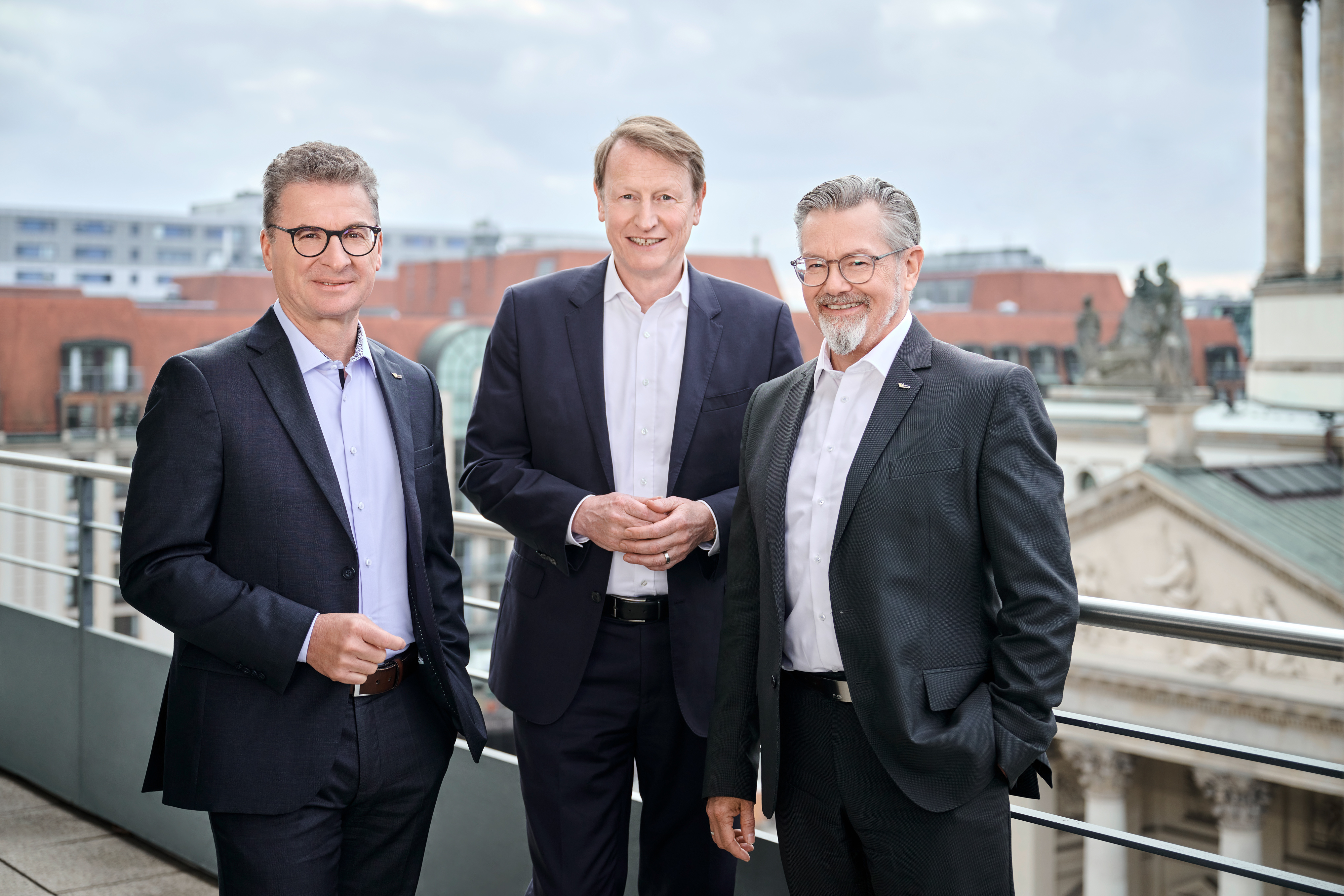
Vorstände der VNG AG (v.l.n.r.): Bodo Rodestock, Vorstandsmitglied Finanzen/Personal; Ulf Heitmüller, Vorstandsvorsitzender; Hans-Joachim Polk, Vorstandsmitglied Infrastruktur/Technik © Foto: Torsten Proß
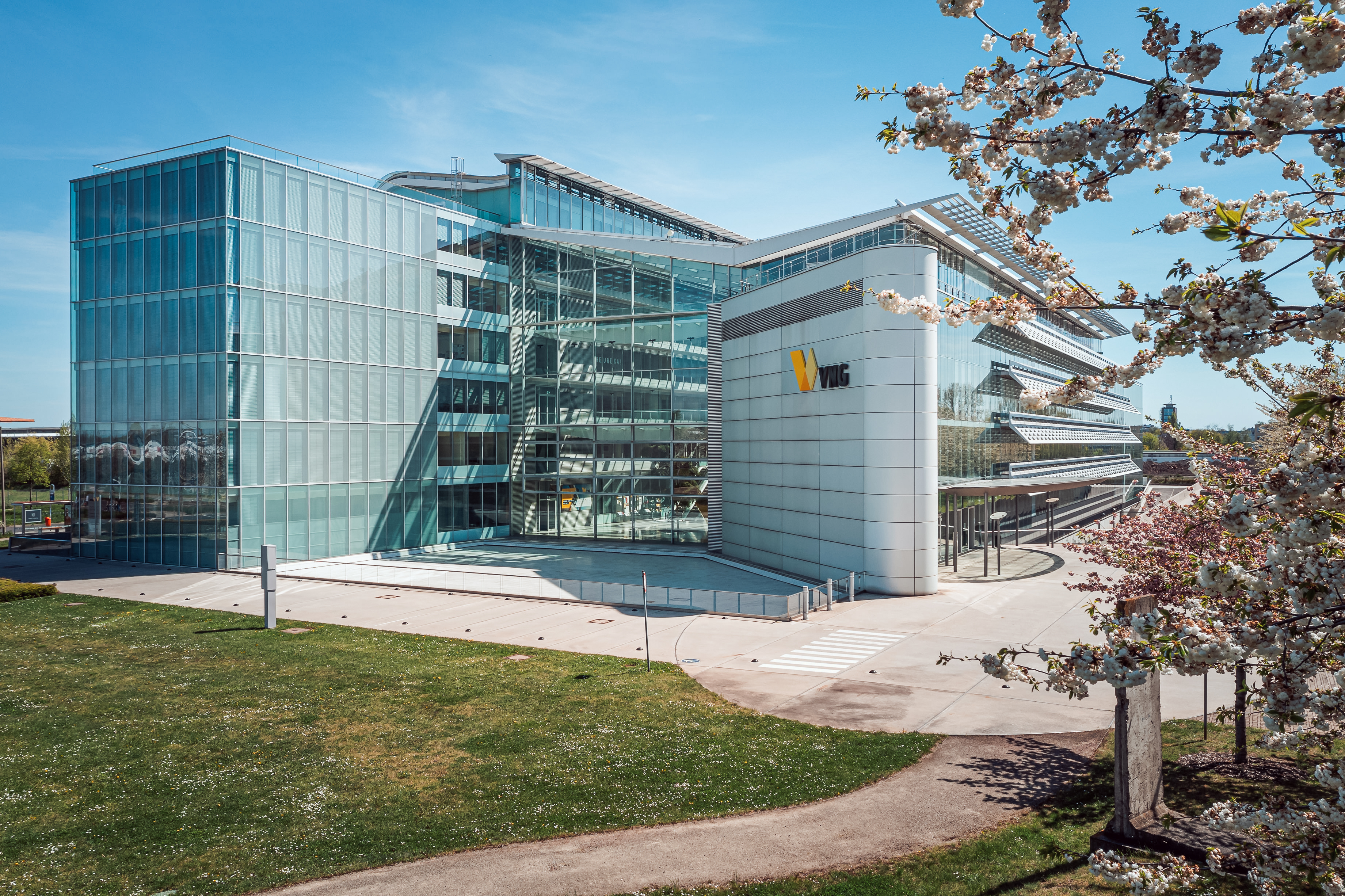
Konzernzentrale der VNG AG in Leipzig. © Foto: Eric Kemnitz
Financial information
Here you will find the current key financial figures for the financial year 2023.
